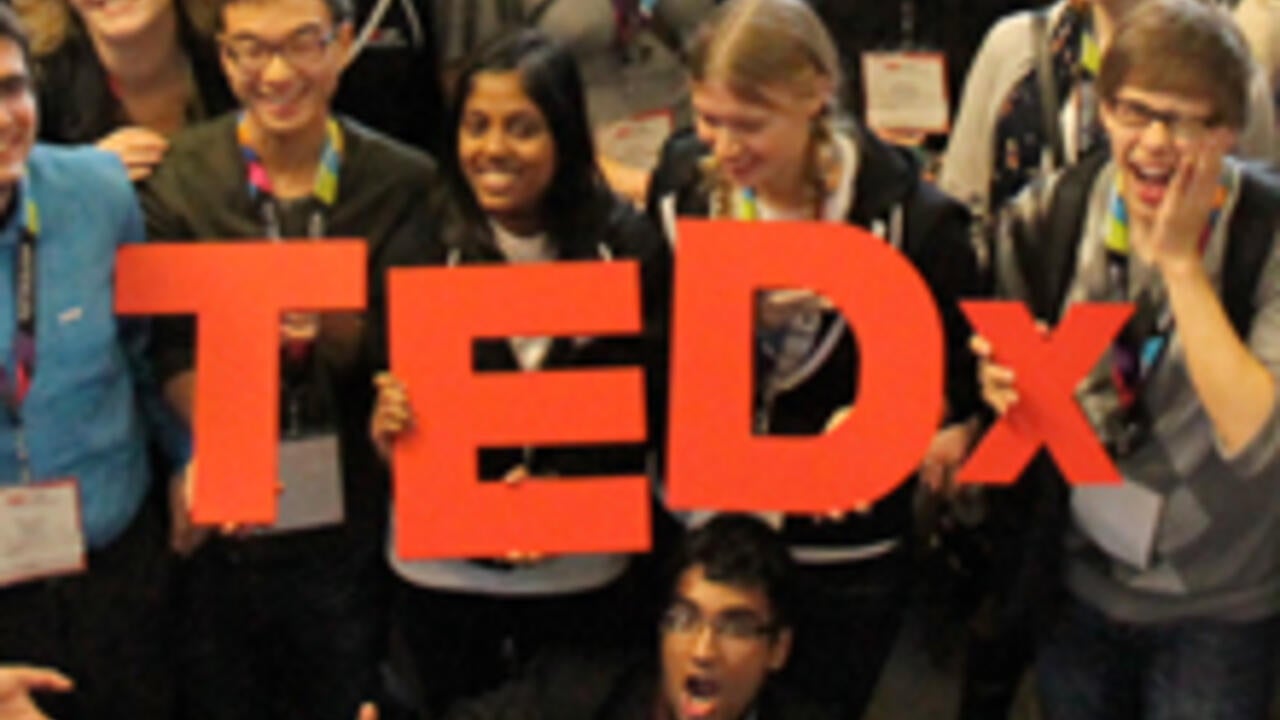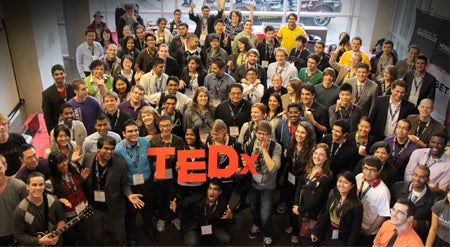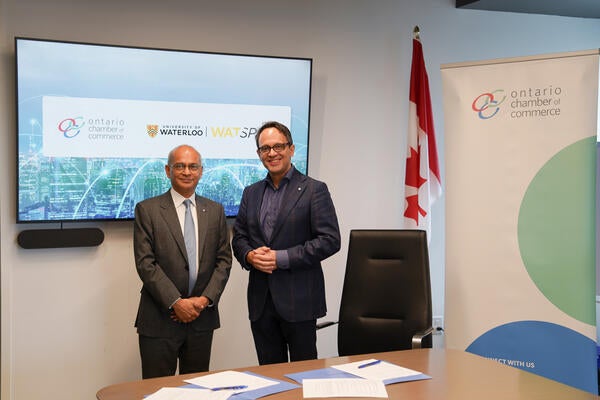
TEDxUW offers big ideas at high speed
TEDx and the University of Waterloo are a perfect fit, says a conference organizer. Co-operative education nurtures innovation and encourages exposure to new ideas. TEDxUW serves as a stage.

TEDx and the University of Waterloo are a perfect fit, says a conference organizer. Co-operative education nurtures innovation and encourages exposure to new ideas. TEDxUW serves as a stage.
By Christian Aagaard Communications & Public Affairs
Sharp students at the University of Waterloo are putting together a conference on what gives successful people their edge.
And not just any conference: This one comes under the TEDx brand, where the typical participant wraps up the day with a head full of inspirational stories and a longer list of contacts.
“The most personal ideas are the ones that are the most memorable,” says Prashanth Gopalan, founder and chair of TEDxUW. The first one was held last year.
The fitting main venue for TedxUW’s edge-themed conference Nov. 17 is the Mike and Ophelia Lazaridis Quantum-Nano Centre, home to leading research in technology based on controlling particles in the quantum realm.
A dozen speakers, each with some connection to the university, will appear before an audience of 100 invitees. Another 250 people gathered in the Davis Centre will watch a video feed. Others are registering to tune in live online.
TED (Technology, Entertainment and Design) spun out of a 1984 conference in California. Today, it’s a non-profit program that licenses independent events around the world.
While each event has its own theme and structure, short talks are the main ingredient. Some of the speakers at TEDxUW are familiar: Broadcaster and former music industry executive Denise Donlon, entrepreneur and philanthropist Bill Tatham and tobacco-control researcher Geoff Fong. Alumni appearing at the event include Ami Richter, founder of Lug, and Olympic gold medalist Heather Moyse.
TEDx conferences aren’t just built around what the speakers have to say, but what the listeners do with those ideas after they’ve heard them.
“TEDx is a platform for people to connect on a very deep level,” says Julia Chelaru, media relations director for TEDxUW.
Chelaru and Gopalan, both 22 and heading toward bachelor of science degrees next spring, are among eight volunteer directors making arrangements for Nov. 17. The volunteer pool numbers around 40 and includes students, staff and faculty.
TEDx and University of Waterloo are a perfect fit, Gopalan says. Co-operative education nurtures innovation and encourages exposure to new ideas. TEDxUW serves as a stage.

Read more
The faculties of Science and Arts introduce a new theatre and performance course tailored to Science students

Read more
Waterloo’s WatSPEED to provide businesses with access to AI upskilling programs in new province-wide initiative

The University of Waterloo recently broke ground for the new space, scheduled for completion by this fall.
Read more
Construction begins on Indigenous outdoor gathering space at University of Waterloo
The University of Waterloo acknowledges that much of our work takes place on the traditional territory of the Neutral, Anishinaabeg and Haudenosaunee peoples. Our main campus is situated on the Haldimand Tract, the land granted to the Six Nations that includes six miles on each side of the Grand River. Our active work toward reconciliation takes place across our campuses through research, learning, teaching, and community building, and is co-ordinated within the Office of Indigenous Relations.